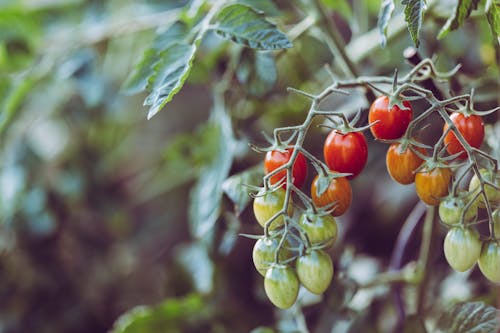Edible Gardens: Cultivating Your Own Ingredients at Home
Cultivating a culinary garden can be a rewarding endeavor that brings fresh, homegrown ingredients to your kitchen. With thoughtful planning, this endeavor might enhance both your cooking and well-being, providing a sustainable source of herbs, vegetables, and fruits. Starting a garden can be a delightful way to explore new flavors while possibly reducing grocery bills.
Culinary Gardens: Growing Fresh Ingredients at Home
A thriving culinary garden starts with picking the perfect spot. Most herbs and vegetables need at least six hours of sunlight daily, so choose a sunny area. Soil quality matters too—testing your soil or using raised beds filled with rich compost can give plants the nutrients they need to thrive.
If outdoor space is limited, container gardening on patios or balconies works great. Containers are flexible: you can move them to chase sunlight, ensuring your plants get the light they need. The right location sets the stage for a bountiful harvest.
Picking Seeds and Seedlings
Choosing the right seeds and plants makes for a more rewarding harvest. New gardeners might start with easy-to-grow herbs like basil, parsley, and thyme—they’re versatile in cooking and forgiving for beginners. Tomatoes, peppers, and lettuce are also popular picks, offering plenty of uses and generous yields.
It’s important to match plants to your climate. Some thrive in warmth, while others prefer cooler weather. Checking with local garden centers or extension offices can help you find varieties that grow best in your area, increasing your chances of success.
Soil Health and Composting
Healthy soil is the backbone of a great culinary garden. Mixing compost into your soil boosts fertility and improves texture, giving plants the nutrients they need. Composting kitchen scraps not only cuts down on waste but also creates nutrient-rich amendments that supercharge plant growth.
Managing soil pH and drainage is key. Well-draining soil prevents root rot, while keeping pH balanced ensures plants can absorb nutrients. Adding organic matter regularly feeds the soil’s ecosystem, fostering a healthy balance between plants and soil life.
Watering Smartly
How you water can make or break your garden. Overwatering can drown roots, while underwatering stresses plants—both lead to poor growth or disease. A drip irrigation system delivers water directly to roots, saving water and keeping plants healthy.
Pay attention to your plants and adjust watering based on the weather. Hot, dry spells mean more frequent watering, while rainy periods call for less. Tailoring your approach to your garden’s needs helps create a resilient, thriving space.
Handling Pests and Diseases
Every gardener deals with pests and diseases, but proactive steps can keep them in check. Using integrated pest management—like attracting beneficial insects (think ladybugs) or planting natural deterrents such as marigolds or nasturtiums—helps keep unwanted bugs away without harsh chemicals.
Catching issues early is key. Regularly check plants for signs of trouble, and use organic solutions like neem oil or homemade insecticidal soap to treat problems. Healthy plants, grown with proper care, are also more resistant to pests and diseases.
Harvesting and Cooking with Your Bounty
Knowing when and how to harvest brings out the best flavors. Most herbs taste strongest when picked in the morning, when their oils are most concentrated. Vegetables like tomatoes and peppers should be harvested at peak ripeness for the best taste and nutrition.
Storing your harvest properly keeps ingredients fresh longer. Use your homegrown produce in salads, sauces, or herbal teas—fresh-picked flavors elevate any dish. Experimenting with new recipes turns your garden into a source of culinary inspiration.
Start Your Culinary Garden Journey
Growing a culinary garden lets you enjoy fresh, homegrown ingredients while adding joy to your daily life. By focusing on location, plant selection, soil health, and smart care, you can create a garden that enhances both your meals and your lifestyle.
Tending to a garden connects you more deeply to nature and food, nourishing both body and soul. With a little patience and curiosity, it can become a beloved part of your everyday routine.
